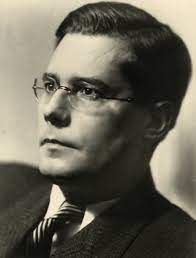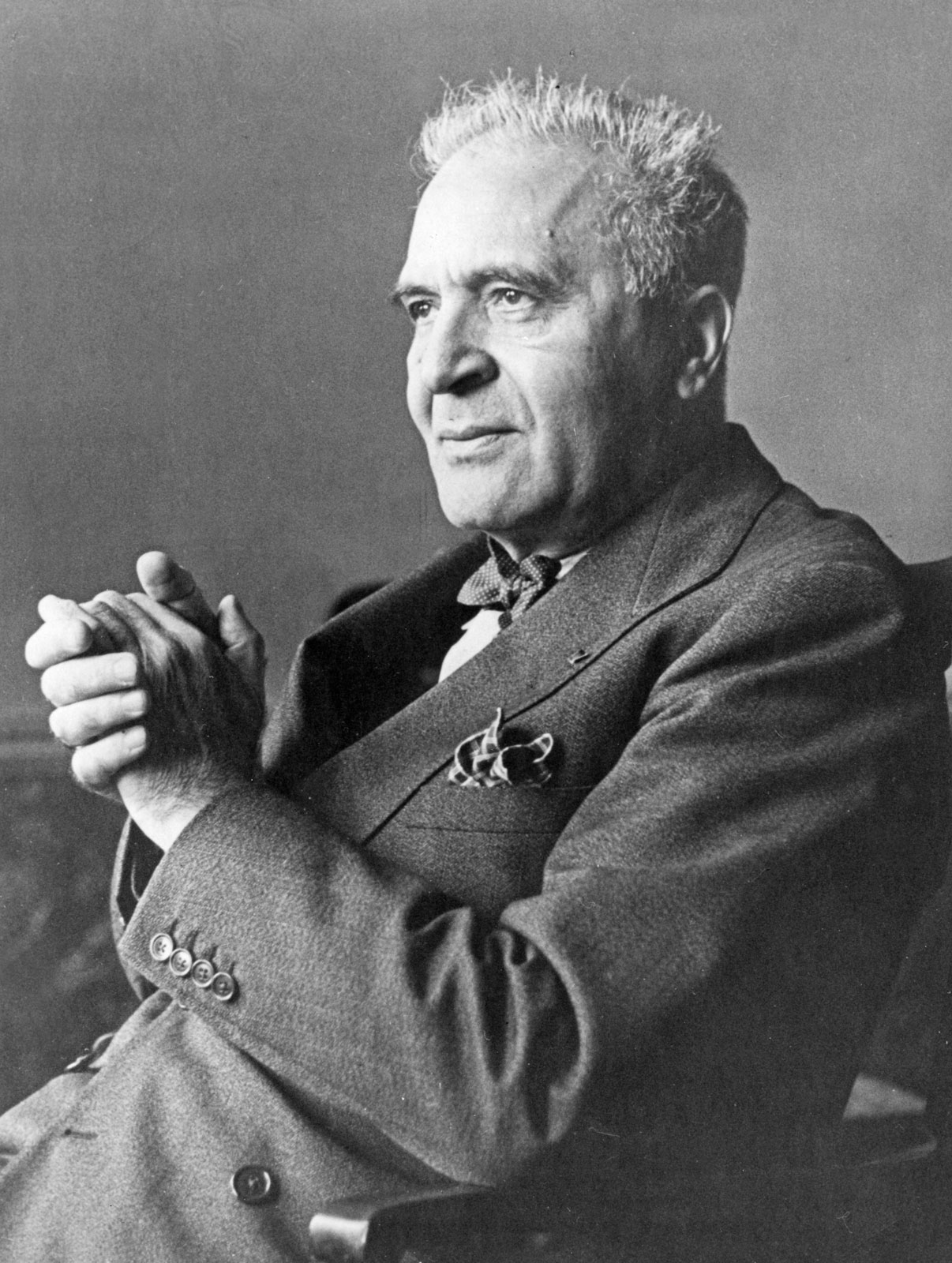This Week in Classical Music: September 18, 2023.Several conductors. We missed a lot of anniversaries while exploring the music of the transitional period between the Renaissance and early Baroque.Today we’ll get back to a group of conductors.First, Karl Böhm, one of the most successful of them.Böhm was born on August 28th of 1894 in Graz, Austria.His career took off in the 1920s, with some help from Bruno Walter; in 1927 Böhm was appointed the chief musical director in Darmstadt, and in 1931 he took the same position at the prestigious Hamburg Opera.In 1933 the Nazis came to power in Germany and Böhm took over the Dresden Semper Opera, after Fritz Busch, the previous director, went into exile.Böhm was a friend of Richard Strauss and conducted several premiers of his operas.In 1938 Böhm appeared at the Salzburg Festival, and in 1943 took over the famous Vienna opera.For many years Böhm was a Nazi sympathizer, though never a member of the NSDAP; after the war, he went through a two-year denazification period, and then his career took off again.He continued his engagements with Vienna and Dresden, conducted in South America, and made a very successful New York debut in 1957.He frequently led the Metropolitan, premiering operas by Berg and Strauss and successfully conducting many of Wagner’s operas (Birgit Nilsson debuted under Böhm’s baton).Böhm’s final engagements were in London, at Covent Garden and with the London Symphony.He died on August 14th of 1981, two weeks shy of his 87th birthday.
Here is Richard Strauss’s Ein Heldenleben (A Hero's Life), a tone poem from 1898.Karl Böhm conducts the Vienna Philharmonic Orchestra.This recording was made in 1976.Also, quite recently we came across a DW documentary from 2022 called Music in Nazi Germany: The Maestro and the Cellist of Auschwitz (here).It’s very much worth watching.The maestro in question is not Karl Böhm but Wilhelm Furtwängler, eight years older than Böhm and more established.Still, much of what is said in the documentary about Furtwängler applies to Böhm (we think that to an even higher degree).A note: the “kapellmeister” of the Auschwitz women’s orchestra, Alma Rosé, mentioned in the documentary, died there in April of 1944.Alma was the daughter of Arnold Rosé, the concertmaster of the Vienna Philharmonic for 50 years and the leader of the famous Rosé Quartet.Alma’s mother was Gustav Mahler’s sister.
We mentioned Bruno Walter’s name above; he also happens to be one of the conductors we wanted to write about.Walter was born on September 15th of 1876 in Berlin.We celebrated him several years ago here.At least as talented as Böhm, his life couldn’t have been more different.Walter was Jewish, for many years he collaborated closely with Mahler and, in 1912, led the posthumous premier performance of the composer’s Ninth Symphony.He was the music director of the Bavarian State Opera in Munich, where he conducted most of Wagner’s operas.Walter escaped from Germany in 1933 (at the time he was the principal conductor of the Leipzig Gewandhaus Orchestra).After working in Europe, he moved to the US in 1939 and settled in Beverly Hills, the area that hosted a large German expat community.In the US, he worked with many orchestras, including the Chicago Symphony, the Los Angeles Philharmonic, and the Philadelphia Orchestra.Bruno Walter was 85 when he died in 1962.Here Bruno Walter is playing the piano and conducting the NBC Symphony Orchestra in Mozart’s Piano Concerto no. 20.This is a live recording made on November 3rd of 1939.
Just to list other conductors in our group: István Kertész (b. August 28, 1929); three conductors, born on September 1: Tullio Serafin (in 1878), Leonard Slatkin (in 1944), Seiji Ozawa, (in 1935).Christoph von Dohnányi was born on September 8, 1929, and Christopher Hogwood, on September 10, 1941.
Several Conductors, 2023
This Week in Classical Music: September 18, 2023. Several conductors. We missed a lot of anniversaries while exploring the music of the transitional period between the Renaissance and early Baroque. Today we’ll get back to a group of conductors. First, Karl Böhm, one of the most successful of them. Böhm was born on August 28th of 1894 in Graz, Austria. His career took off in the 1920s, with some help from Bruno Walter; in 1927 Böhm was appointed the chief musical director in Darmstadt, and in 1931 he took the same position at the prestigious Hamburg Opera. In 1933 the Nazis came to power in Germany and Böhm took over the Dresden Semper Opera, after Fritz Busch, the previous director, went into exile. Böhm was a friend of Richard Strauss and conducted several premiers of his operas. In 1938 Böhm appeared at the Salzburg Festival, and in 1943 took over the famous Vienna opera. For many years Böhm was a Nazi sympathizer, though never a member of the NSDAP; after the war, he went through a two-year denazification period, and then his career took off again. He continued his engagements with Vienna and Dresden, conducted in South America, and made a very successful New York debut in 1957. He frequently led the Metropolitan, premiering operas by Berg and Strauss and successfully conducting many of Wagner’s operas (Birgit Nilsson debuted under Böhm’s baton). Böhm’s final engagements were in London, at Covent Garden and with the London Symphony. He died on August 14th of 1981, two weeks shy of his 87th birthday.
early Baroque. Today we’ll get back to a group of conductors. First, Karl Böhm, one of the most successful of them. Böhm was born on August 28th of 1894 in Graz, Austria. His career took off in the 1920s, with some help from Bruno Walter; in 1927 Böhm was appointed the chief musical director in Darmstadt, and in 1931 he took the same position at the prestigious Hamburg Opera. In 1933 the Nazis came to power in Germany and Böhm took over the Dresden Semper Opera, after Fritz Busch, the previous director, went into exile. Böhm was a friend of Richard Strauss and conducted several premiers of his operas. In 1938 Böhm appeared at the Salzburg Festival, and in 1943 took over the famous Vienna opera. For many years Böhm was a Nazi sympathizer, though never a member of the NSDAP; after the war, he went through a two-year denazification period, and then his career took off again. He continued his engagements with Vienna and Dresden, conducted in South America, and made a very successful New York debut in 1957. He frequently led the Metropolitan, premiering operas by Berg and Strauss and successfully conducting many of Wagner’s operas (Birgit Nilsson debuted under Böhm’s baton). Böhm’s final engagements were in London, at Covent Garden and with the London Symphony. He died on August 14th of 1981, two weeks shy of his 87th birthday.
Here is Richard Strauss’s Ein Heldenleben (A Hero's Life), a tone poem from 1898. Karl Böhm conducts the Vienna Philharmonic Orchestra. This recording was made in 1976. Also, quite recently we came across a DW documentary from 2022 called Music in Nazi Germany: The Maestro and the Cellist of Auschwitz (here). It’s very much worth watching. The maestro in question is not Karl Böhm but Wilhelm Furtwängler, eight years older than Böhm and more established. Still, much of what is said in the documentary about Furtwängler applies to Böhm (we think that to an even higher degree). A note: the “kapellmeister” of the Auschwitz women’s orchestra, Alma Rosé, mentioned in the documentary, died there in April of 1944. Alma was the daughter of Arnold Rosé, the concertmaster of the Vienna Philharmonic for 50 years and the leader of the famous Rosé Quartet. Alma’s mother was Gustav Mahler’s sister.
leader of the famous Rosé Quartet. Alma’s mother was Gustav Mahler’s sister.
We mentioned Bruno Walter’s name above; he also happens to be one of the conductors we wanted to write about. Walter was born on September 15th of 1876 in Berlin. We celebrated him several years ago here. At least as talented as Böhm, his life couldn’t have been more different. Walter was Jewish, for many years he collaborated closely with Mahler and, in 1912, led the posthumous premier performance of the composer’s Ninth Symphony. He was the music director of the Bavarian State Opera in Munich, where he conducted most of Wagner’s operas. Walter escaped from Germany in 1933 (at the time he was the principal conductor of the Leipzig Gewandhaus Orchestra). After working in Europe, he moved to the US in 1939 and settled in Beverly Hills, the area that hosted a large German expat community. In the US, he worked with many orchestras, including the Chicago Symphony, the Los Angeles Philharmonic, and the Philadelphia Orchestra. Bruno Walter was 85 when he died in 1962. Here Bruno Walter is playing the piano and conducting the NBC Symphony Orchestra in Mozart’s Piano Concerto no. 20. This is a live recording made on November 3rd of 1939.
Just to list other conductors in our group: István Kertész (b. August 28, 1929); three conductors, born on September 1: Tullio Serafin (in 1878), Leonard Slatkin (in 1944), Seiji Ozawa, (in 1935). Christoph von Dohnányi was born on September 8, 1929, and Christopher Hogwood, on September 10, 1941.